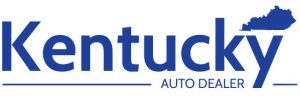Each month, KADA’s legal counsel, Ron Smith and Sarah Bishop from Stoll Keenon Ogden PLLC, will offer a look at applicable Kentucky statutes and their impact on Kentucky dealers. This month, their focus is on Kentucky’s dealer incentive statute.
THE PROBLEM: As dealers know, over the past few years most manufacturers have reduced gross profit margins on their vehicles, sometimes making it unreasonably difficult for dealers to actually make any money on new vehicle sales. In order to influence dealer behavior, manufacturers have instituted various “conditional” “incentive” programs requiring dealers to meet a smorgasbord of requirements in order to “earn” gross profit margin incentives. Some of these involve certified training, customer services and the like. However, depending on the dealers’ markets, some can be impossible for the dealer to justify in light of the expenses associated therewith (for example: separation of an operation franchise from a previously manufacturer-approved dualed facility; constructing a new building; expensive showroom reconstruction; and requirements for expensive equipment). In one recent case, the distributor approved a dealer’s upgraded facility. Three months later, the manufacturer changed the definition of ‘units in operation,’ declared the dealer’s facility noncompliant and took away a 2% facility compliant contribution contained in the manufacturer’s incentive program. The dealer successfully contested that issue and the 2% has been restored and will run through 2023.
Often, a dealer’s market must drive his or her decision. A recent example is the Lincoln Vitrine Program (Vitrine is French for “glass display case”). Previously approved dual Ford- Lincoln dealerships theoretically will be required to separate and at a minimum, build a new Lincoln showroom along with a customer waiting area, etc. Most smaller Ford-Lincoln dealerships simply could not afford or justify that expense, considering their normal sale of a few cars per month. Accordingly, those dealers were denied the percentage incentive available to larger dealers in the program. In short, these incentives are functionally unavailable to small-market dealers, resulting in less gross profit per vehicle available to the dealer to generate sales. A few years ago, Hyundai/Genesis, after being rebuffed in their effort to separate Genesis from Hyundai, as a result of dealer pressure, litigation and administrative actions, allowed continued combination of the franchises. Recently, however, a program involving incentive payments and facility requirements for Hyundai standalones and Genesis standalones are slowly accomplishing what Hyundai/Genesis originally intended: the elimination of smaller market Genesis dealers unless the dealer constructs a building.
All of these incentive programs are short-term programs. Ford can eliminate the Lincoln program annually in the Hyundai/Genesis program is also short-lived. Dealers are ultimately forced to decide whether to make an investment that is economically unfeasible, most of the time in both the short-term and long-term.
The right of the dealer to demand data from the manufacturer and the potential for treble damages should be persuasive in discussions with manufacturers about new incentive programs and the requirements set forth therein.
A potential remedy is found in KRS 190.070(3)(a), which makes it illegal for a manufacturer or distributor to discriminate in favor of one dealer against another dealer holding a franchise for the same line make, where the manufacturer does not make “Any vehicle, part, or other product that is not available to each dealer at the same price, including discounts, rebates, incentives, or other payments or allowances affecting the net price of the product;”. The question here is whether or not the incentive program has a disparate impact on smaller market dealers. In the Lincoln program, the incentive is actually on the vehicle and is not payable until the vehicle is sold at retail, which could violate the statute.
Additionally, KRS 190.070 (2)(f) provides that a manufacturer may not offer, “refunds or other types of inducements” to a dealer of one line make without making the same offer available to all dealers of the same line make. Along these same lines, KRS 190.070(3)(d) prohibits manufacturers from discriminating against one dealer in favor of another dealer of the same line make by furnishing only one dealer with “Any promotional or advertising payment or allowance that is not made available to each dealer on proportionally equal terms.”
Kentucky’s Statute on incentive programs is one of the better statutes in the nation while the KRS 190.070(1)(h) statute on facility improvements could be improved. A general prohibition exists where requiring the improvement would not be reasonable, given current political or business conditions.
If a manufacturer violates this non-discrimination provision, a manufacturer/distributor cannot defend itself by claiming that the promotional payment or allowance was made to all dealers IF the offer was conditioned upon the dealer meeting criteria that are unreasonable and unnecessary to fulfill the dealer’s obligations under the franchise agreement. KRS 190.040(4). To establish that its criteria are reasonable and necessary, the manufacturer must establish that it was meeting the requirements established was within the dealer’s control to meet the requirement imposed on the dealer as a condition of the offer. For smaller markets dealers that is the essential question.
If a dealer believes it has been discriminated against with respect to incentives, the dealer has a statutory right to demand in writing that the manufacturer provide within 30 days information relevant for the dealer to determine if discrimination occurred. KRS 190.070(5). If such information is not provided within 30 days, the burden of proof in any subsequent proceeding will fall to the manufacturer to prove that discrimination did NOT occur. If a dealer is discriminated against, it can recover three times the value it would have received if the manufacturer had not discriminated against it. KRS 190.070(6).
The right of the dealer to demand data from the manufacturer and the potential for treble damages should be persuasive in discussions with manufacturers about new incentive programs and the requirements set forth therein. Likewise, the requirement that any incentive program must be based upon reasonable and necessary criteria works in dealers’ favor in those instances where manufacturers implement programs require significant financial commitments that may not be commercially reasonable in light of current economic circumstances. Many dealers (particularly in smaller markets) can’t justify expense based on volume.
For further information, please feel free to contact any of the following individuals.
KADA: Jason Wilson, (502)695-3333; or
Stoll Keenon Ogden Automotive Dealership Services members:
Ron Smith, (317) 822-6787; or
Sarah Bishop, (502) 875-6245.






